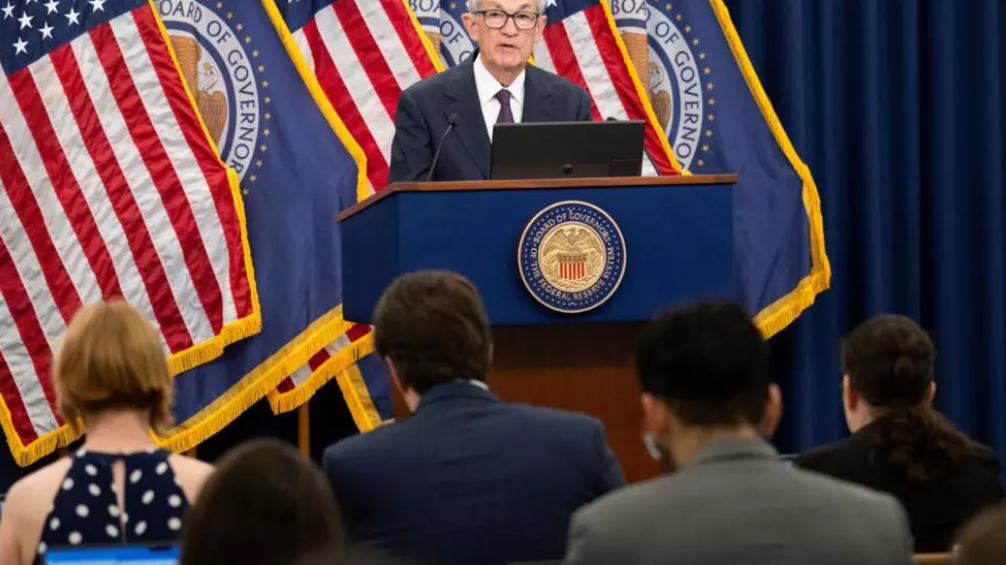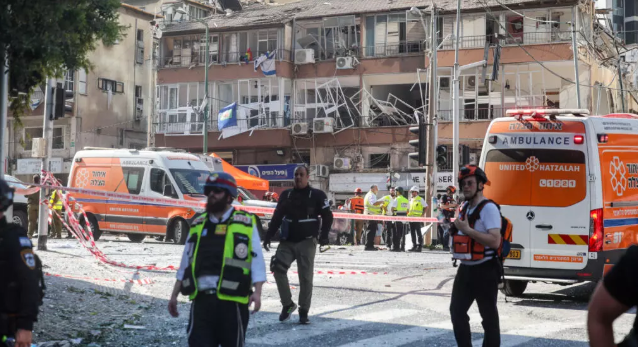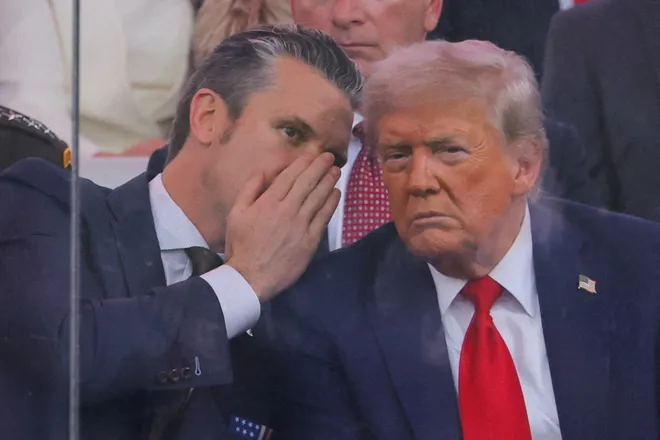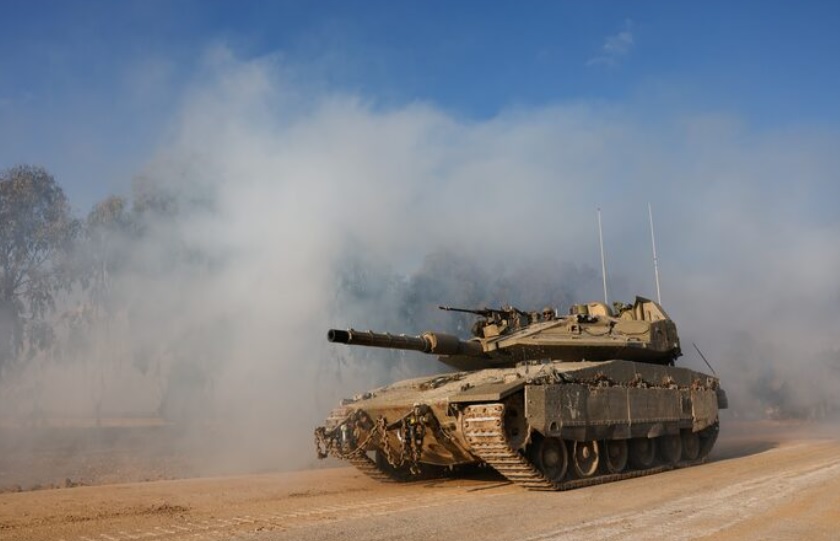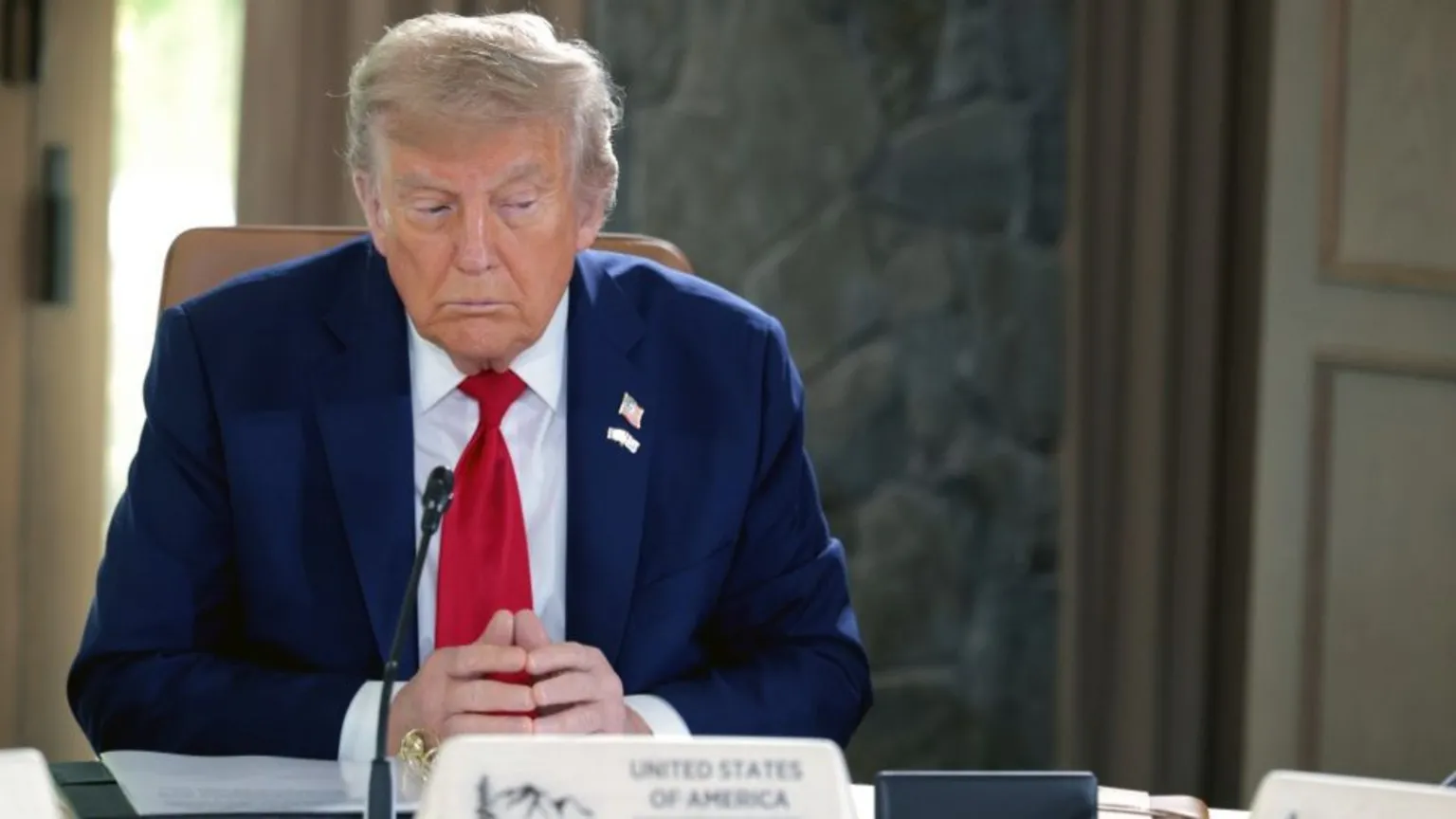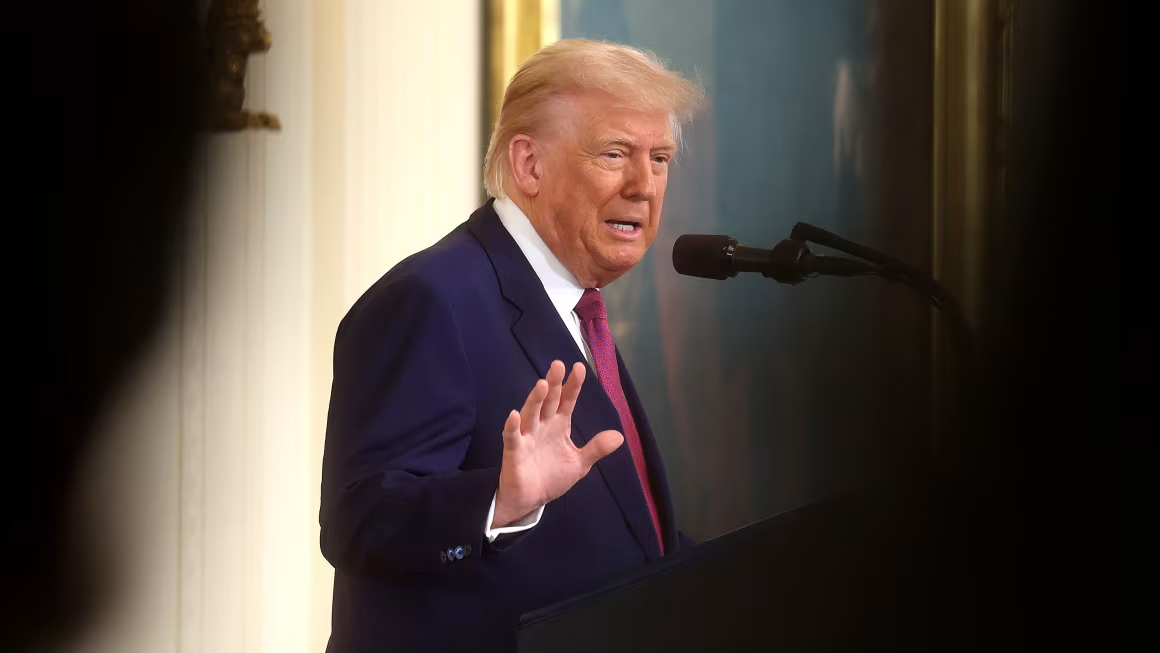

U.S. President Donald Trump delivers remarks before signing a series of bills related to California’s vehicle emissions standards on June 12. Win McNamee/Getty ImagesCNN —
Amid ongoing waves of tit-for-tat strikes between Israel and Iran, President Donald Trump is publicly and privately making clear his desire to keep the United States out of the fray for now, wary of becoming bogged in another Middle East war and highly attuned to the changing politics of his party.
Sources familiar with the matter say Israel has spoken with the US about possibly increasing its level of involvement, though one Israeli official cautioned those conversation have not yet included “practical” discussions of the finer details. And while Trump hopes to avoid a prolonged conflict that could further destabilize the Middle East, some in the administration recognize that American military assistance may help Israel conclude its objectives more quickly, the sources said.
“We’re not involved in it. It’s possible we could get involved. But we are not at this moment involved,” Trump told ABC News on Sunday morning.
The competing interests have created a complicated dynamic for a president eager to make good on his pledge to bring peace to the world’s troubled regions.
Since Israel launched its first attack early Friday morning, the US has offered defensive support to Israel intercepting an onslaught of Iranian reprisal strikes.
But Trump has stopped well short of joining Israel’s military in its attempts to dismantle Iran’s nuclear facilities, resisting pressure from fellow Republicans to join the fight.
He said in a social media post Saturday that he felt the conflict “should end” as he continues to hold out hope for a negotiated agreement that would curb Tehran’s nuclear ambitions, even after planned talks this weekend in Oman between the US and Iranian negotiating teams were called off.
At stake is Trump’s promise to act as a global peacemaker — or, as he told his inaugural crowd in January, to “bring a new spirit of unity to a world that has been angry, violent and totally unpredictable.”
That vow has already been tested by his inability to bring about an end to the Ukraine conflict and halting efforts to stop the fighting in Gaza. Now, as a new flashpoint is threatening to spiral out of control on Trump’s watch, the commander-in-chief is attempting to limit US involvement.
“The U.S. had nothing to do with the attack on Iran, tonight,” Trump wrote on Truth Social late Saturday amid a fresh round of attacks in the region. “If we are attacked in any way, shape or form by Iran, the full strength and might of the U.S. Armed Forces will come down on you at levels never seen before. However, we can easily get a deal done between Iran and Israel, and end this bloody conflict!!!”
The post sent the message that Trump’s line for getting more directly involved in Israel’s assaults would be an attack on American facilities or personnel in the region. Short of that, the US role in the conflict so far has largely been defensive.
The Israeli operation against Iran is expected to take “weeks, not days” and is moving forward with implicit US approval, according to White House and Israeli officials.
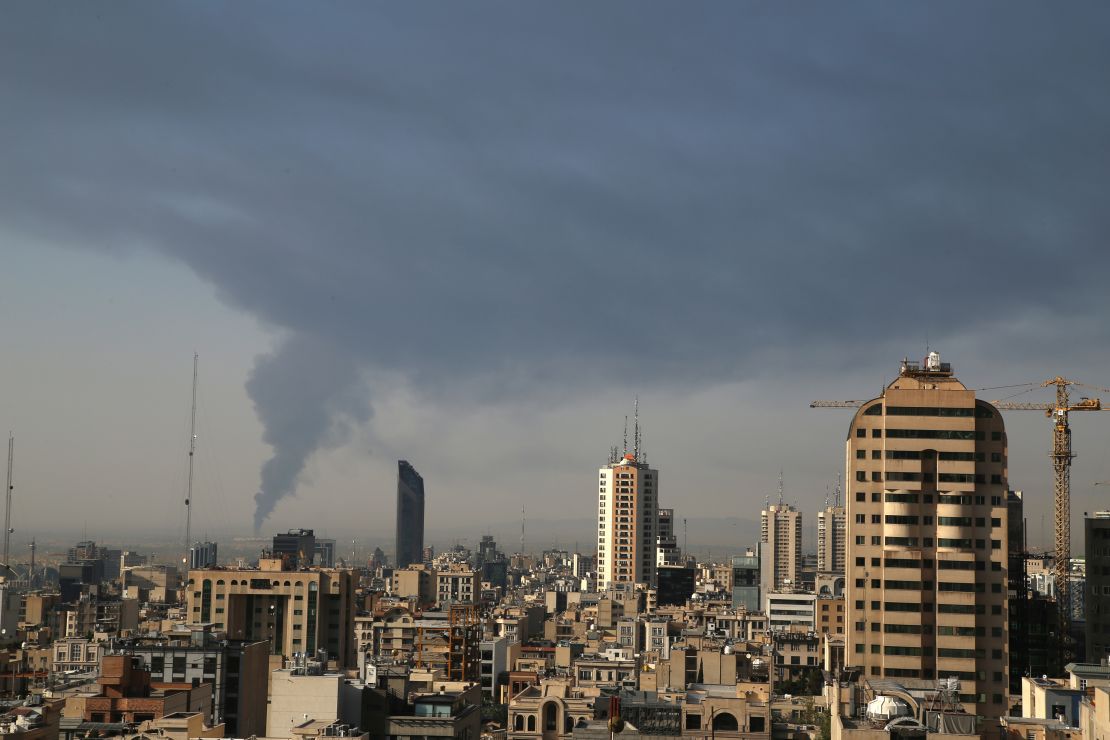
Huge smoke rises up from an oil facility facility after it appeared to have been hit by an Israeli strike Saturday in southern Tehran. Mohammad Ghadamali/AP
The Trump administration has not critiqued the weeks-long timeframe in private discussions, an Israeli official told CNN. A White House official said the administration was aware and implicitly supportive of Israel’s plans. When asked about how long the conflict could continue, the official said it depended on Iran’s response.
“The Trump administration firmly believes this can be solved by continuing negotiations with the US,” the official said, adding that the US was not going to direct Israel to do anything but defend itself.
American military planners have long had prepared options for joint US-Israeli actions against Iranian facilities should a US president ultimately decide to try taking out Iran’s nuclear facilities, some of which are buried deep underground.
There is little to indicate Trump has come close to approving such options, however, and according to an Israeli official, the possibility of offensive US support for Israel’s strikes inside Iran had not been discussed on a “practical basis.”
“We are not there, on a practical basis,” the Israeli official said. “If at some point, the United States decides to take an offensive role, I don’t think we’ll be in a position to try and talk them out of it – but that’s not our ask,” the official said, adding that such a move would be a sovereign decision of the US.
The official explained that the endgame is to make sure that Iran is “no longer an existential threat” to Israel, with both its nuclear and ballistic missiles program.
“If it’s done in conjunction with allies, fine, but if it’s not done in conjunction with allies, we have to do it ourselves,” the official said.
Inside the White House, there continues to be heavy skepticism about getting involved in the conflict further, according to multiple officials familiar with the matter.
Trump remains concerned about getting dragged into a war he didn’t start and wanted to avoid, and is acutely aware of the complicated politics at play, those officials said.
Though he publicly warned Israel against launching an attack on Iran ahead of Friday’s strikes, he said afterward he was supportive of the effort and well aware that it was being planned.



Flames rise from an oil storage facility after it was struck by an Israeli missile in Tehran early Sunday, June 15.Vahid Salemi/AP


































In pictures: The escalating conflict between Israel and Iran
1 of 33PrevNext
Trump has long promised not to engage in “nation building” adventurism overseas, decrying his predecessors for sending American troops to die in wars that generated little benefit back home.
“For at least two decades, political leaders from both parties have dragged our military into missions it was never meant to be” a part of, said Trump told graduating cadets at West Point last month.
“They sent our warriors on nation-building crusades to nations that wanted nothing to do with us, led by leaders that didn’t have a clue in distant lands,” he said, vowing to never repeat the mistake.
Now, however, he is under pressure from some of his Republican allies to take a more interventionist role.
“If diplomacy fails, going all in for Israel shows that America is back as a reliable ally and a strong force against oppression. It would strengthen our hand in all corners of the world, as well as all other conflicts we face,” Sen. Lindsey Graham wrote on X last week.

